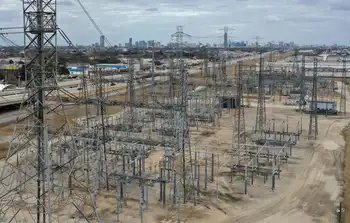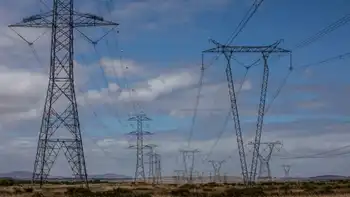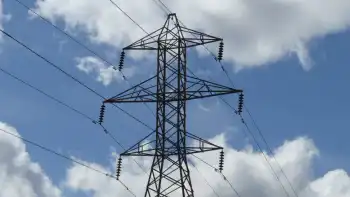N.L. premier says Muskrat Falls costs are too great for optimism about benefits

High Voltage Maintenance Training Online
Our customized live online or in‑person group training can be delivered to your staff at your location.

- Live Online
- 12 hours Instructor-led
- Group Training Available
Muskrat Falls financial impact highlights a hydro megaproject's cost overruns, rate mitigation challenges, and inquiry findings in Newfoundland and Labrador, with power exports, Churchill River generation, and subsea cables shaping long-term viability.
Key Points
It refers to the project's burden on provincial finances, driven by cost overruns, rate hikes, and debt risks.
✅ Costs rose to $12.7B from $6.2B; inquiry cites suppressed risks.
✅ Rate mitigation needed to offset power bill shocks.
✅ Exports via subsea cables may improve long-term viability.
Newfoundland and Labrador's premier says the Muskrat Falls hydro megaproject is currently too much of a massive financial burden for him to be optimistic about its long-term potential.
"I am probably one of the most optimistic people in this room," Liberal Premier Dwight Ball told the inquiry into the project's runaway cost and scheduling issues, echoing challenges at Manitoba Hydro that have raised similar concerns.
"I believe the future is optimistic for Newfoundland Labrador, of course I do. But I'm not going to sit here today and say we have an optimistic future because of the Muskrat Falls project."
Ball, who was re-elected on May 16, has been critical of the project since he was opposition leader around the time it was sanctioned by the former Tory government.
He said Friday that despite his criticism of the Labrador dam, which has seen costs essentially double to more than $12.7 billion, he didn't set out to celebrate a failed project.
He said he still wants to see Muskrat Falls succeed someday through power sales outside the province, but there are immediate challenges -- including mitigating power-rate hikes once the dam starts providing full power and addressing winter reliability risks for households.
"We were told the project would be $6.2 billion, we're at $12.7 (billion). We were never told this project would be nearly 30 per cent of the net debt of this province just six, seven years later," the premier said.
"I wanted this to be successful, and in the long term I still want it to be successful. But we have to deal with the next 10 years."
The nearly complete dam will harness Labrador's lower Churchill River to provide electricity to the province as well as Nova Scotia and potentially beyond through subsea cables, while the legacy of Churchill Falls continues to shape regional power arrangements.
Ball's testimony wraps up a crucial phase of hearings in the extensive public inquiry.
The inquiry has heard from dozens of witnesses, with current and former politicians, bureaucrats, executives and consultants, amid debates over Quebec's electricity ambitions in the region, shedding long-demanded light on what went on behind closed doors that made the project go sideways.
Some witnesses have suggested that estimates were intentionally suppressed, and many high-ranking officials, including former premiers, have denied seeing key information about risk.
On Thursday, Ball testified to his shock when he began to understand the true financial state of the project after he was elected premier in 2015.
On Friday, Ball said he has more faith in future of the offshore oil and gas industry, and emerging options like small nuclear reactors, for example, than a mismanaged project that has put immense pressure on residents already struggling to make ends meet.
After his testimony, Ball said he takes some responsibility for a missed opportunity to mitigate methylmercury risks downstream from the dam through capping the reservoir, in parallel with debates over biomass power in electricity generation, something he had committed to doing before it is fully flooded this summer.
Still to come is a third phase of hearings on future best practices for issues like managing large-scale projects and independent electricity planning, two public feedback sessions and closing submissions from lawyers.
The final report from the inquiry is due before Dec. 31.











